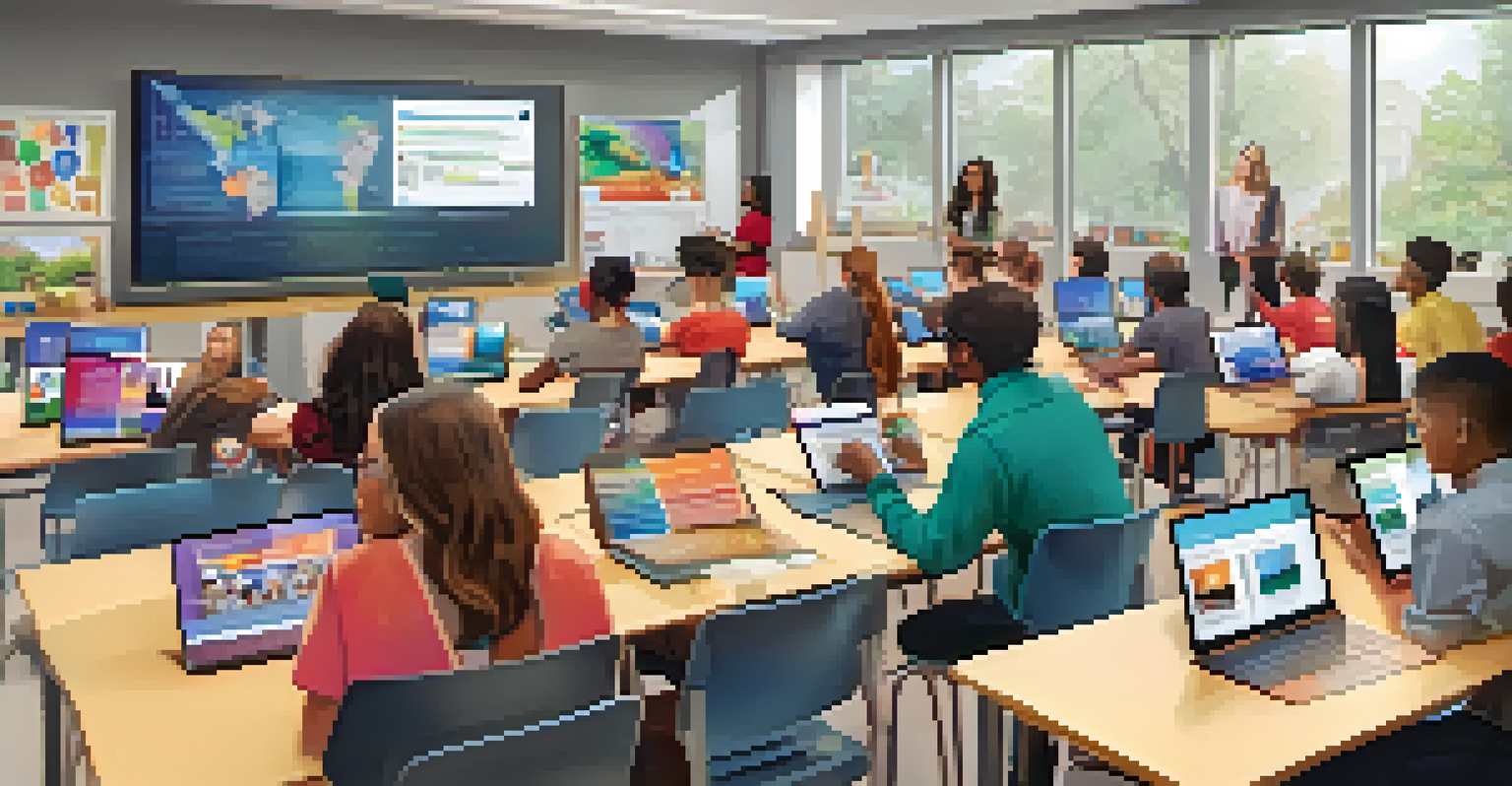Constructivism in Adult Learning: Building Knowledge Together

Understanding Constructivism in Adult Learning
Constructivism is an educational theory that emphasizes the role of learners in actively constructing their own understanding and knowledge. In adult learning, this approach is particularly effective because it recognizes the wealth of experiences each learner brings to the table. Instead of passively receiving information, adults engage with content, reflect on their experiences, and build new knowledge collaboratively.
We do not learn from experience... we learn from reflecting on experience.
This approach aligns with how adults naturally learn in their daily lives, where they often solve problems and make decisions based on prior knowledge. By fostering an environment where learners can share their perspectives, constructivism promotes deeper understanding and retention of information. It’s about creating a dynamic learning atmosphere that values input from every participant.
In essence, constructivism turns the traditional learning model on its head; instead of a one-way transmission of knowledge from teacher to student, it transforms the classroom into a vibrant community of learners. This method not only enhances engagement but also encourages critical thinking and creativity, essential skills in today’s fast-paced world.
The Role of Collaboration in Constructivism
Collaboration is a cornerstone of constructivist learning, especially for adults who often thrive in team settings. Working together allows learners to challenge each other's assumptions, provide diverse perspectives, and build on one another’s ideas. This interaction creates a rich tapestry of knowledge that no single individual could achieve alone.

For example, consider a group of professionals from different industries coming together for a workshop. Each participant contributes unique insights based on their experiences, leading to innovative solutions that benefit everyone involved. This collaborative environment not only enhances learning but also fosters professional relationships that can extend beyond the classroom.
Constructivism empowers adult learners
This educational theory encourages adults to actively build their own knowledge through collaboration and reflection.
Moreover, collaboration encourages accountability among learners. When individuals work together, they are more likely to engage meaningfully with the material and support one another's learning journeys. This shared responsibility cultivates a sense of community, making the learning experience more enjoyable and impactful.
Active Learning Strategies in Constructivism
Active learning strategies are vital in constructivist approaches to adult education. These strategies can take various forms, such as group discussions, hands-on projects, and case studies, all designed to promote engagement and critical thinking. By participating actively, learners are more likely to internalize and apply new knowledge effectively.
The only source of knowledge is experience.
For instance, role-playing exercises can help adults explore real-world scenarios relevant to their careers. This immersive experience encourages learners to apply theoretical concepts in practice, bridging the gap between knowledge and application. Such active involvement not only enhances understanding but also builds confidence in using newly acquired skills.
Additionally, technology can play a significant role in facilitating active learning. Online forums, interactive simulations, and virtual collaboration tools allow adult learners to connect and engage in ways that suit their busy lifestyles. These resources empower learners to take charge of their education, reinforcing the constructivist principle of self-directed learning.
The Importance of Reflection in Learning
Reflection is a crucial element in constructivist adult learning, allowing individuals to process and evaluate their experiences. By taking time to think about what they’ve learned and how they’ve applied it, adults can gain deeper insights and make meaningful connections to their prior knowledge. This reflective practice enhances the overall learning experience.
For example, after a collaborative project, encouraging participants to discuss what went well and what could be improved fosters a culture of continuous learning. Such discussions not only reinforce knowledge but also highlight areas for growth, making learners more adept at navigating future challenges. Reflection transforms experiences into lessons that can be applied in various contexts.
Collaboration enhances learning
Working together allows learners to share diverse perspectives, fostering innovation and accountability in the learning process.
Moreover, reflection can be integrated into various learning formats, whether through journals, group debriefs, or online discussions. This emphasis on looking back encourages adults to take ownership of their learning journey, driving personal and professional development. Ultimately, reflection solidifies the learning process, ensuring that knowledge is retained and utilized effectively.
Creating a Supportive Learning Environment
A supportive learning environment is essential for successful constructivist education. This means fostering a space where learners feel safe to express their thoughts, ask questions, and make mistakes. When adults feel supported, they are more likely to engage fully and share their diverse perspectives, enriching the learning experience for everyone.
Instructors play a significant role in establishing this environment by promoting inclusivity and respect among participants. Simple practices, such as encouraging open dialogue and providing constructive feedback, can create a culture of trust and collaboration. When learners know their voices matter, they become active contributors rather than passive recipients of knowledge.
Furthermore, flexibility in learning formats and schedules can also enhance support for adult learners. Recognizing the various commitments adults have, such as work and family, allows for a more accommodating approach to education. This adaptability not only encourages participation but also demonstrates a genuine understanding of the learners' needs.
Integrating Technology in Constructivist Learning
Technology has revolutionized the way we approach constructivist learning for adults. Online platforms, digital resources, and interactive tools provide new avenues for collaboration and knowledge sharing. This integration allows learners to connect with peers from around the world, expanding their perspectives and enriching their learning experiences.
For example, platforms like discussion boards and video conferencing tools enable adult learners to work together despite geographical barriers. This connectivity fosters a global learning community, where ideas and resources can be exchanged freely. Such interactions not only enhance the learning process but also prepare adults for the increasingly interconnected world they navigate in their careers.
Reflection solidifies knowledge
Taking time to reflect on experiences helps adults connect new information to prior knowledge, enhancing retention and application.
Additionally, technology can facilitate personalized learning experiences. With access to a wealth of online materials, adults can tailor their learning journeys according to their interests and needs. This self-directed approach aligns perfectly with constructivist principles, empowering learners to take control of their educational paths.
Challenges and Solutions in Constructivist Learning
While constructivism offers numerous benefits, it also presents certain challenges in adult learning environments. One common issue is the varying levels of experience and knowledge among learners, which can lead to frustration or disengagement. Addressing these disparities is crucial to ensure that all participants benefit from the collaborative nature of constructivist education.
To combat this, instructors can implement strategies such as differentiated instruction, where activities are tailored to meet diverse learning needs. This approach helps to create a more equitable learning experience, allowing everyone to engage meaningfully. Additionally, setting clear expectations and providing ongoing support can help bridge gaps in knowledge and skills.

Moreover, it's essential to encourage a growth mindset among learners, emphasizing that challenges are opportunities for learning rather than obstacles. By fostering resilience and adaptability, adults can navigate the complexities of constructivist learning more effectively. This mindset not only enhances individual learning experiences but also strengthens the overall learning community.